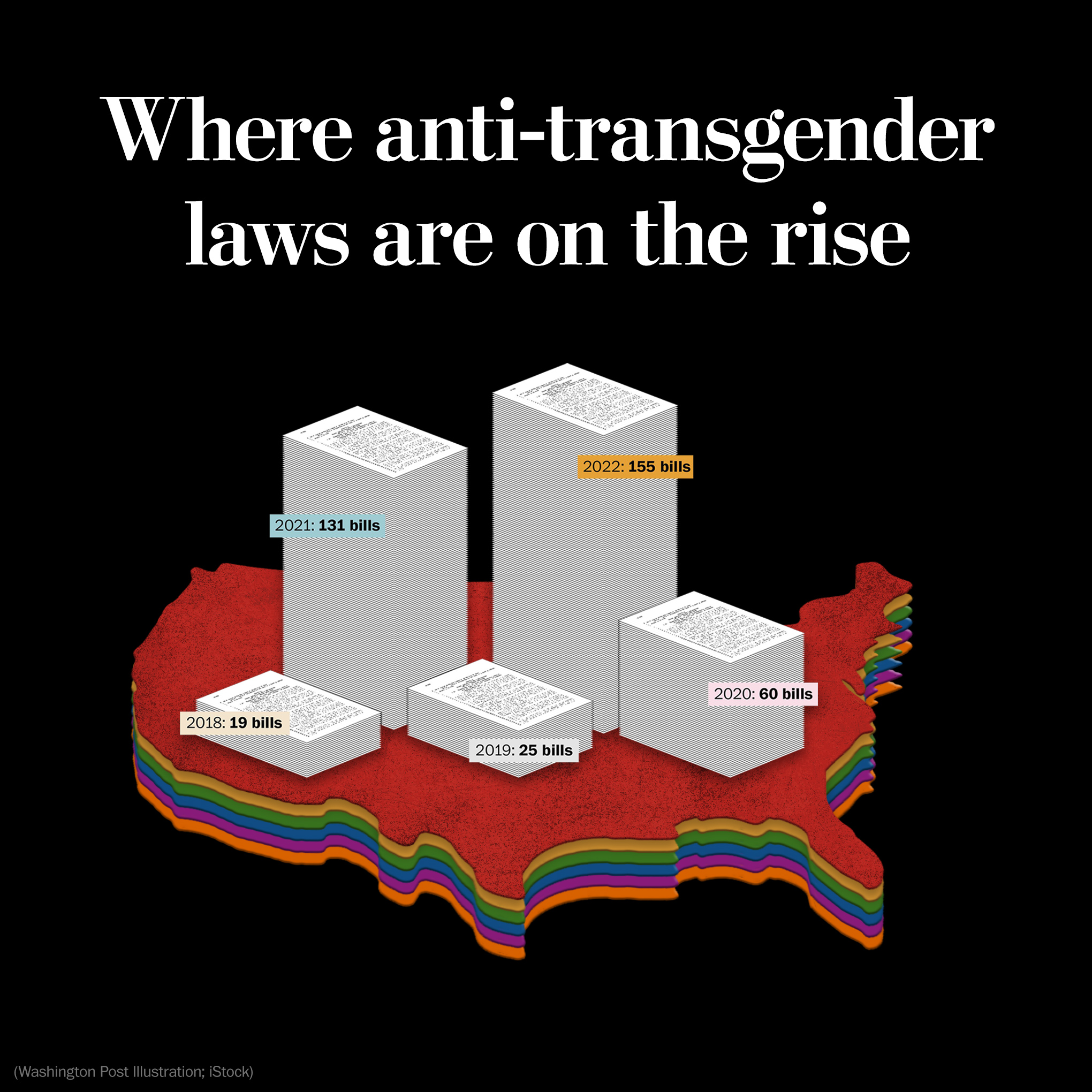Faith Monahan ’24
News Editor
State legislatures across the country have introduced bills that would impact transgender and LGBTQ+ rights. The current wave of legislation can be grouped into broader categories of public expression, healthcare, and education. Specific issues addressed by these bills include expanding civil lawsuit standing for gender reaffirming care, requiring parental permission for a student’s preferred pronouns, policies on bathroom usage in schools based on biological sex on birth certificates, and expanding justifications for civil suits on the basis of religious or moral convictions.
The ACLU is currently tracking 429 bills in state legislatures that the organization considers are targeting LGBTQ rights. At least 14 bills have passed into law and at least 64 have been defeated while others are at different levels of advancement.
On March 13th, Arkansas passed Act 274 which makes a healthcare professional who provides gender reassignment healthcare to trans identifying individuals under the age of 18 liable. Parents and guardians may bring civil action against healthcare professionals who provide gender reassignment healthcare. The Act outlines that, in defense of such a lawsuit, healthcare professionals must document that the minor has lived in their perceived gender for at least two years, that at least two health care professionals have certified that the healthcare was the only option to treat a mental health concern, and that the child suffers from no other mental health concerns including autism, ADHD, eating disorders or depression. Healthcare procedures performed on intersex youth are exempt from liability for civil suit by parents or guardians.
Arizona’s State Senate passed a bill earlier this month that would prohibit school officials from referring to a student by “a pronoun that differs from the pronoun that aligns with the student’s biological sex” unless a parent provides written permission. It also states that even with written permission, school districts cannot require employees to use a student’s preferred pronoun if the employee has a religious conviction against its usage. The AZ Senate has also passed a broader reaching bill that would prohibit public organizations, including public universities and schools, from requiring employee training in diversity, equity, and inclusion.
Texas’s state legislature has progressed on a bill that would prevent the use of government funds to be used for gender affirming healthcare for children.
Even in majority Democrat legislatures, Republican representatives have introduced some form of legislation that would affect transgender individuals in nearly every state. In January, Connecticut state legislator Rob Sampson introduced a bill that would provide immunity for private youth organizations from civil lawsuit for including policies that require participants to compete in athletic teams matching the gender identity on an individual’s birth certificate. The proposed bill, labeled S.B. No. 468, is being reviewed by the legislature’s Joint Committee on Judiciary. Representative Doug Dubinsky also introduced H. B. No 6213 in the CT House of Representatives which would amend general statutes “to prohibit student athletes who were born of the male sex from participating and competing in women’s interscholastic athletic events.”
The laws enacted and proposed could also introduce legal definitions in states revolving around sex and gender, such as preventing the use of a woman’s restroom by a person with male on their birth certificate. It is likely that the bills that do pass into law will face legal action in the courts.






+ There are no comments
Add yours